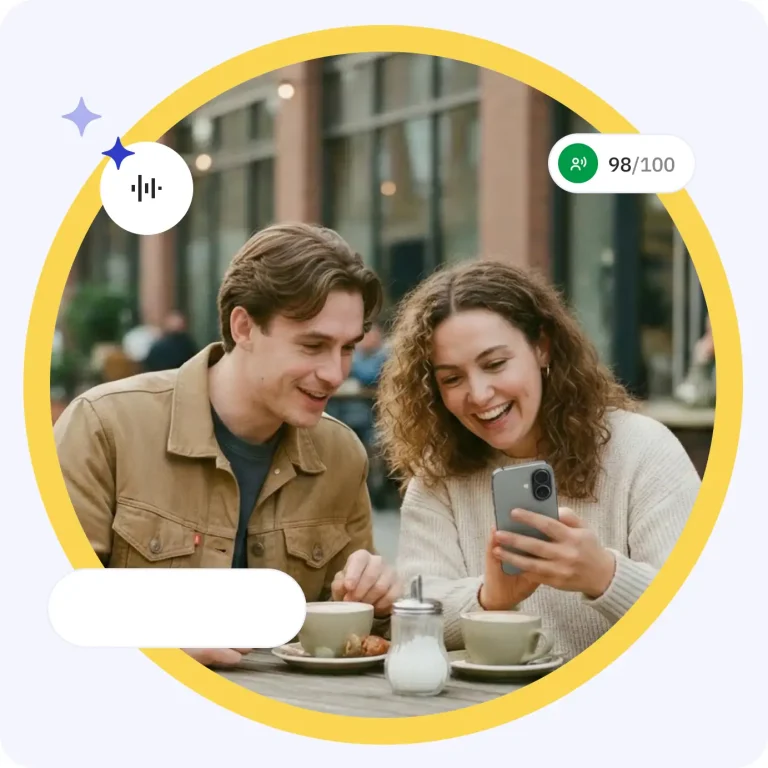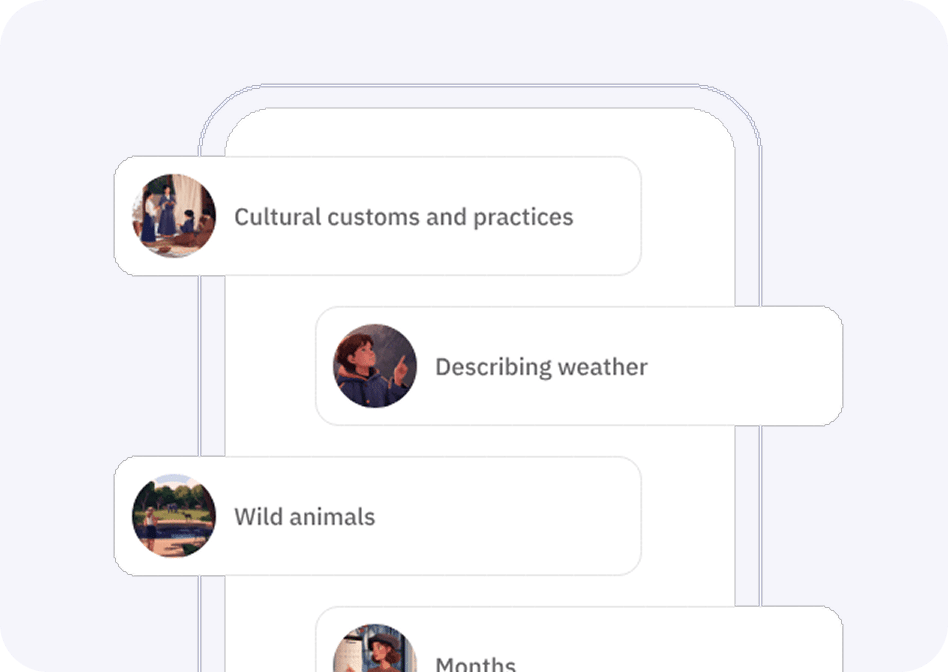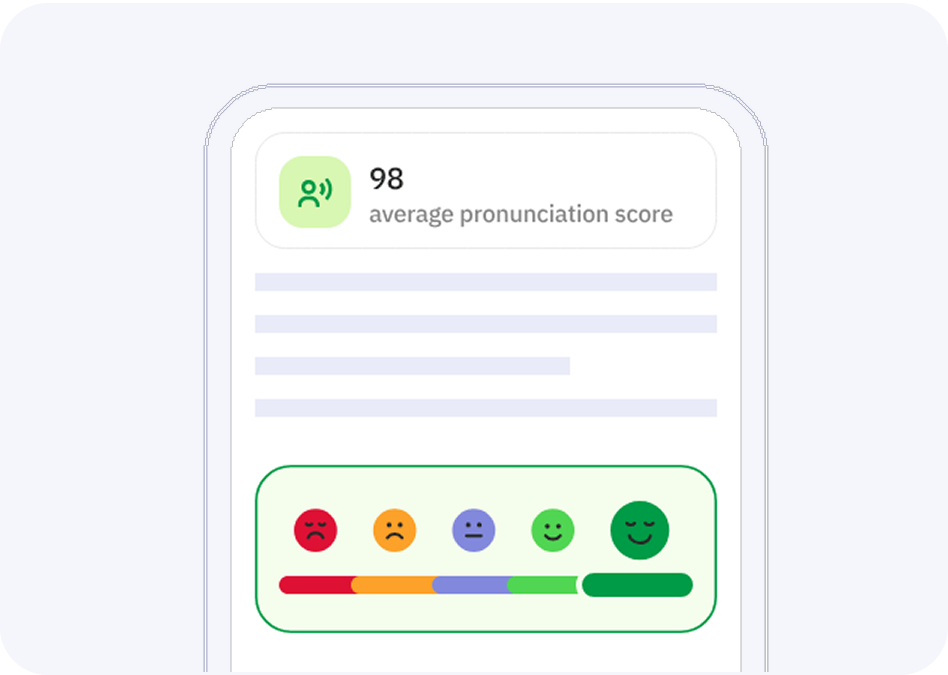50 Comical German Words That Will Ignite Your Humor
As a lovely addition to the rich diversity of languages that span across our planet, German stands out – not only for its vast vocabulary or firm grammatical structure but also for its unique and sometimes downright comical words. The quirky characteristics of this language have been a great source of bemusement and amusement for those trying to learn or simply get a grasp of its versatile nature.

The talkpal difference

Personalized Education
Every student has a distinct approach to acquiring knowledge. Through Talkpal technology, we analyze the study patterns of millions simultaneously to build highly effective educational environments that adapt specifically to individual needs. This ensures your journey is fully customized based on your interests and goals rather than a generic curriculum.

Cutting-Edge Technology
Our central mission is to lead the way in providing universal access to a tailored learning journey. By utilizing the most recent breakthroughs in artificial intelligence and modern software, we ensure that everyone can benefit from a sophisticated and personalized educational experience.

Making Learning Fun
We have transformed the study process into a delightful activity. Staying motivated while learning online can often be a struggle, so we designed Talkpal to be incredibly captivating. The platform is so engaging that users frequently prefer mastering new language skills over playing video games.
LANGUAGE LEARNING EXCELLENCE
The most efficient way to learn a language
Try Talkpal for freeFunny Words in German
Here, as we embark on this linguistic journey together, we are going to explore fifty funny German words that are bound to tickle your funny bone and perhaps, ignite your interest in this deep and compelling language. Trust me, you might want to grab a notepad (and maybe a cup of coffee or two) as we dive into this linguistic circus.
1. “Kummerspeck”: Literally translating to ‘grief bacon’, this word is used to describe the extra pounds gained from emotional overeating. Next time you find yourself reaching for that extra slice of cake, remember it’s just the ‘kummerspeck’.
2. “Backpfeifengesicht”: A face in need of a slap – yes, German has a word for that too!
3. “Ohrwurm”: It translates to ‘ear worm’. This term is used to describe a song that’s stuck in your head.
4. “Schadenfreude”: This term describes the joy one feels from another’s misfortune. Quite a dark humor there, isn’t it?
5. “Dreikäsehoch”: Literally, ‘three cheeses high.’ It is used for people who are vertically challenged.
6. “Fingerspitzengefühl”: Feeling in the fingertips. This term describes someone who has a great intuitive instinct or touch.
7. “Kuddelmuddel”: This term refers to incredible disorder or chaos, say in the state of a teenager’s bedroom.
8. “Geborgenheit”: This term encompasses feelings of safety and warmth. It’s like being wrapped up inside a cozy blanket on a rainy day with a cup of hot chocolate in your hand.
9. “Lebensmüde”: Tired of life. Well, aren’t we all at times, specifically on Mondays?
10. “Zugzwang”: When you’re forced to make a move, even if you don’t want to in a game of chess or in life in general!
Now, aren’t those words fun? And guess what? We are only a fifth of the way through this list.
11. “Morgenmuffel”: Literally, it means a ‘morning-grumbler,’ an apt definition for someone who is not a morning person.
12. “Fernweh”: A longing for distant places, the polar opposite of homesickness.
13. “Doppelgänger”: A word we’ve all heard, spontaneous twin or a look-alike.
14. “Dachshund”: Literally a “badger dog”. It’s a breed of hound, and it does share similarities with a badger!
15. “Papierkrieg”: Paper war. This term is used for excessive paperwork or bureaucratic red tape.
Navigating our way through these fifty words, we have successfully crossed the first thirty percent!
16. “Schlafmütze”: Sleepyhead. It’s something I’ve been called on multiple lazy Sundays.
17. “Wirrwarr”: It’s used to express confusion or to describe something tangled or disordered.
18. “Sitzpinkler”: A man who sits down to urinate. It’s a slightly derogatory term.
19. “Klugscheisser”: Smart Aleck, or someone who thinks they know everything. We’ve all had the displeasure of meeting a ‘klugscheisser’ or two, right?
20. “Blitzkrieg”: Lightning War. A term from WWII, used to define a swift, sudden military offensive.
Let’s continue with our intriguing journey through the realm of German words.
21. “Drachenfutter”: Dragon fodder. Given by guilty husbands to their wives when they stayed out too late!
22. “Gesundheit”: It’s used as a response to someone’s sneeze, similar to ‘bless you’ in English.
23. “Schmutz”: It simply refers to dirt or filth but sounds so much more fun!
24. “Eifersucht”: Literally jealousy. Translates into ‘eager search’ depicting a self-seeking and insecure nature.
25. “Torschlusspanik”: Fear of doors closing or opportunities running out, often associated with age.
Halfway through our journey now, and the humor just keeps on coming!
26. “Freundschaftsbezeugung”: Proof of friendship. Quite a mouthful for a simple concept.
27. “Naseweis”: Nose white. This term is used for a smarty pants or a know-it-all.
28. “Besserwisser”: Better knower. Again, this term is similar to English’s know-it-all.
29. “Sturmfrei”: Storm free. Used to describe the liberating feeling of having the house to oneself!
30. “Treppenwitz”: The wit of the stairs. Essentially, it refers to the perfect retort… that you think of too late!
31. “Titelverteidiger”: Title defender. Used in sports, but wouldn’t it be great for defending our stance in day-to-day arguments too?
32. “Wanderlust”: It defines the deep desire to wander and explore the world.
33. “Weltschmerz”: World pain. It is a state of weariness towards the state of the contemporary world.
34. “Weichei”: Literally a ‘soft egg,’ used for someone who is weak or cowardly.
35. “Zeitgeist”: the spirit of the times. Translates to the sentiment or mood of a certain era.
36. “Geschwindigkeitsbegrenzung”: Speed limit. Who wouldn’t burst into laughter when a traffic officer tries to pronounce that?
37. “Schneebesen”: Whisk. Sounds like something out of a Harry Potter movie, right?
38. “Schweinehund”: Pig dog. It means inner temptation or lack of willpower, not an insult to anyone’s pet!
39. “Qualle”: Jellyfish. You’d never guess what it means just by hearing it.
40. “Vollpfosten”: Literally full post, but used to describe someone as a total idiot.
Well, only ten more to go!
41. “Wortschatz”: Word treasure. Isn’t it just a perfect metaphor for a language-learner?
42. “Feierabend”: Party night, referring to the end of a workday.
43. “Fledermaus”: It translates to ‘flutter mouse’, but it actually means bat.
44. “Kater”: Male cat or hangover. Now, isn’t that the cat’s meow?
45. “Rindfleischetikettierungsüberwachungsaufgabenübertragungsgesetz”: This is the longest word ever used in Germany and it relates to a “law for the delegation of monitoring beef labeling.”
46. “Tochtergesellschaft”: A subsidiary company. Sounds like a secret society, doesn’t it?
47. “Quatschkopf”: Silly head. Use this term the next time you spot someone being silly.
48. “Schnappsidee”: A crackpot idea or the kind of idea you might come up with after having one too many schnapps.
49. “Sprachgefühl”: A feeling for language. An important feeling to have, especially when you’re learning a new language.
50. “Waldeinsamkeit”: The feeling of being alone in the woods. A really specific word, don’t you think?
These are some of the most comically intriguing German words which blend humor, culture, and language into a delightful linguistic package. Each word engulfs a universe of meaningful connotations, bringing to life the subtle nuances of German culture. Take this newfound knowledge, get a hearty laugh, stretch the boundaries of your language-learning and remember, language learning is supposed to be fun! So, what’s your favorite ‘Wortschatz’ from the list? Until next time, Auf Wiedersehen!
The most efficient way to learn a language
Try Talkpal for freeFrequently Asked Questions
What makes German words humorous and unique compared to other languages?
What is an example of a particularly humorous or strange German word?
Are these humorous words used regularly in everyday German?
Which German word mentioned is the longest, and what does it mean?







